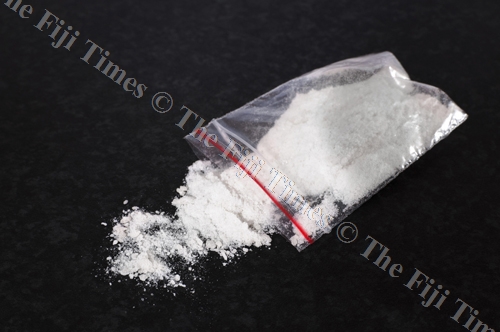THE revelation that the St Giles Psychiatric Hospital in Suva is treating teenagers for methamphetamine abuse every month should not come as a shock now.
Not when reports of people caught with methamphetamine have been on the rise. Not when arrests have been made, and people linked to the manufacture of this frightening and highly addictive drug in Fiji have been on the rise as well.
It is disturbing though, and must force us to rethink how we deal with this drug.
In fact how do we deal with the scourge of society who actually push this drug? Or how do we deal with the scourge of society who actually make it?
These people continue to disregard all thought for the welfare of Fijians. They must be hunted down, and severely dealt with. They must be pulled out of their hiding spots around the country, and reported to the police. They are part of a trade that has the potential to cripple communities, and negatively impact our youth.
They have no feelings at all for their neighbours and for the nation. Now more than ever, the police must be seen to be proactive. This is without a doubt, a lucrative trade.
It surely surpasses marijuana in terms of the negative impact on users and on communities. It has a frightening addictive hold on users and creates a rather massive problem that we must deal with urgently.
St Giles Psychiatric Hospital’s acting medical superintendent Dr Kiran Gaikwad said the highly addictive drug — marijuana and glue-sniffing — were among the biggest substance abuse disorders for teenagers as young as 15 being treated at the hospital.
The issue was highlighted after the opening of the hospital’s alcohol and drug unit by Prime Minister Voreqe Bainimarama last week.
Substance abuse disorder, Dr Gaikwad said, was most common among young patients. This was most common, the doctor said, among patients who were 15, 16 and 17 years old.
“The most common are glue and marijuana and now we have cases of methamphetamine. It’s getting more common and this is worrying because it’s a highly addictive drug.”
Most teenagers, Dr Gaikwad said who were treated for methamphetamine abuse were initially referred to St Giles for other issues. “We keep receiving methamphetamine-related cases every month. This used to be rare but now it’s getting common.”
It is this statement that offers us a sad and rather gloomy look at how we are starting to realise the harsh reality of this meth epidemic.
Dr Gaikwad called on churches and NGOs to assist in the fi ght against hard drugs in Fiji. We should all be saddened and concerned about this development. We should all be angry about the turn of events and state of our nation, and the hold methamphetamine has now in our lives.
Our nation needs us to do something about this. We must rise up to that challenge and assist the police. The powers that be must get off their comfort zone, re-look at strategies, re-evaluate our processes and try and understand why things have developed to this extent. This did not just pop out of the woodworks.




